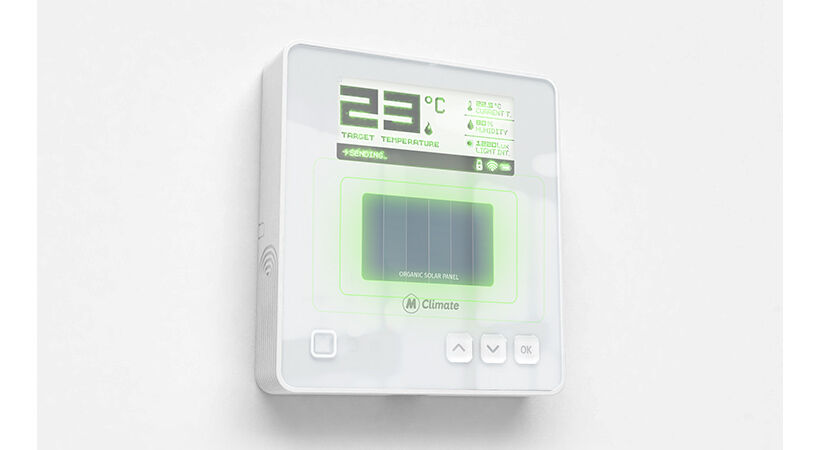MClimate has launched a wireless thermostat self-powered by Epishine’s indoor solar cell with leading performance in indoor light. The sensor measures temperature, movement, humidity, and lux all while being maintenance free.
The global trend towards digitalization and the widespread use of connected devices has led to a surge in the number of disposable batteries being used and discarded. According to recent projections, if this trend continues, an estimated 78 million batteries will be discarded daily within the European Union alone by 2025. At the same time, the need for connected devices has never been greater. Today, 36% of greenhouse gas emissions and 40% of the energy usage in the EU are related to usage of buildings. This can all be optimized and thereby minimized through insights through collected data from smart sensors, but the number of disposable batteries used needs to be lowered rather than increased by the deployment of these sensors.
MClimate’s newest product powered by Epishine’s organic solar cell, a connected thermostat that measures movement, humidity, temperature and illuminance is an important step towards decarbonization - enabling optimization of energy usage and making buildings smart at a low cost and with minimal disruption to tenants.
“Most smart building technology tends to be retrofitted and in the past, this had caused substantial challenges in terms of installing hardware, power supply and connectivity ultimately making it both time and cost prohibitive. LoRaWAN®has successfully solved the connectivity issues and with the solar cells by Epishine we live up to the promise of “only handle it once” devices allowing building owners to swiftly and cost effectively add new functionality to existing real estate with the help of IoT.” shared Violeta Mitsova, Co-Founder and CCO at MClimate
Epishine has developed a high-performance solar cell that harvests energy from the available indoor light. These solar cells are composed entirely of non-toxic elements, making them safe to use in any environment and the most sustainable alternative on the market. By using Epishine's solar cells, sensors can operate without the need for batteries, lowering the TCO immensely. This development is a significant step towards creating more sustainable and long-lasting indoor sensor solutions.
“MClimate is doing important work to make buildings more sustainable. Assisting them in their mission fits us at Epishine perfectly. Our core value is to reduce our environmental impact and one important way to do that is to optimize the operation and maintenance of buildings. Projects like this play a big part in achieving that goal. ” says Ray Benson, Account Executive at Epishine
The thermostat will be available on the market at the end of March.





